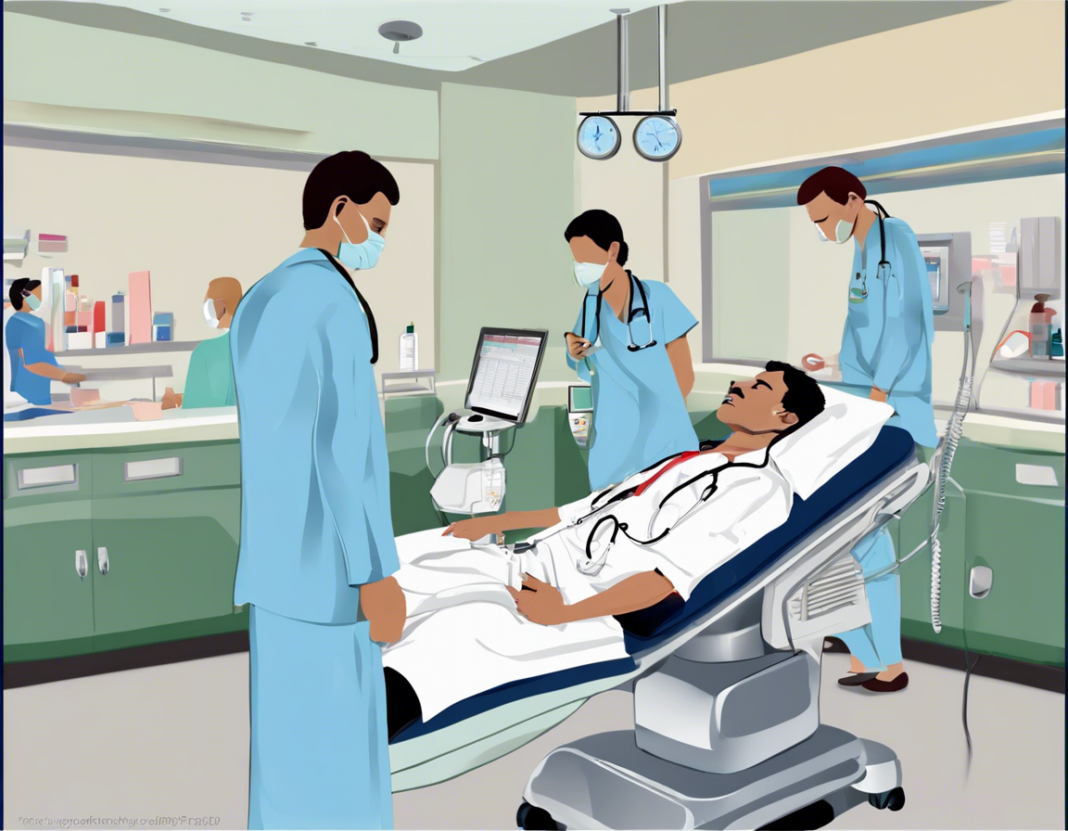What Does OPD Stand For in Medical Field? A Comprehensive Guide
In the medical field, OPD stands for Outpatient Department. The Outpatient Department is a crucial component of a hospital or healthcare facility where patients receive diagnosis, treatment, and care without being admitted for an overnight stay. The OPD is essential for managing routine health issues, follow-up consultations, preventive care, and minor procedures. In this article, we will delve deeper into the significance of the OPD in healthcare, its functions, benefits, and common services provided in outpatient settings.
Understanding OPD in Healthcare
Role and Importance of OPD
The Outpatient Department plays a vital role in the healthcare system by providing timely and accessible medical services to patients who do not require hospitalization. It serves as a primary point of contact for individuals seeking medical attention for various health concerns. The OPD is often the first step in the healthcare process, where patients undergo initial evaluations, consultations, and treatment planning.
Services Offered in the OPD
-
Consultations: Patients can consult with specialists, physicians, or allied healthcare professionals for diagnosis, treatment, and management of health conditions.
-
Diagnostic Services: OPDs offer a range of diagnostic tests such as blood tests, imaging studies (X-rays, MRIs, CT scans), and other laboratory investigations.
-
Minor Procedures: Certain outpatient procedures like wound dressings, vaccinations, and biopsies can be performed in the OPD without the need for hospital admission.
-
Medication Dispensing: Patients can receive prescribed medications or injections from the OPD pharmacy for immediate treatment.
-
Counseling and Education: OPDs provide counseling on various health issues, lifestyle modifications, and disease prevention strategies to promote patient well-being.
Benefits of OPD Services
-
Convenience: OPDs offer convenient access to healthcare services for patients, reducing the need for hospitalization.
-
Cost-Effective: Outpatient care is generally more cost-effective than inpatient services, making it accessible to a broader population.
-
Preventive Care: OPDs focus on preventive care, early detection of diseases, and health promotion, leading to better health outcomes.
-
Continuity of Care: Patients can receive ongoing care, follow-up visits, and treatment monitoring through OPD services, ensuring continuity of care.
Differences Between OPD and IPD
-
OPD (Outpatient Department):
-
Patients visit for consultation, diagnosis, and treatment without being admitted.
-
Services are provided on a walk-in or appointment basis.
-
No overnight stay is required, and patients return home after treatment.
-
IPD (Inpatient Department):
-
Patients are admitted to the hospital for further evaluation, treatment, or surgeries.
-
Requires overnight stay or prolonged hospitalization.
-
Care is provided in a hospital ward or room under the supervision of healthcare professionals.
Types of OPD Clinics
-
General OPD: Offers comprehensive medical services and consultations for various health concerns.
-
Specialty OPD: Focuses on specific medical specialties such as cardiology, dermatology, gynecology, etc., catering to specialized healthcare needs.
-
Emergency OPD: Provides urgent medical care for critical conditions, injuries, and emergencies on a 24/7 basis.
-
Follow-up OPD: Conducts follow-up visits for patients requiring ongoing care, treatment monitoring, or post-operative care.
Challenges Faced by OPDs
-
Patient Volume: Dealing with a large volume of patients can lead to longer waiting times and overcrowding in OPDs.
-
Resource Allocation: Ensuring adequate staffing, equipment, and resources to meet the diverse healthcare needs of patients can be challenging.
-
Coordination of Care: Coordinating care between OPDs, inpatient departments, and other healthcare facilities to ensure seamless transitions for patients.
-
Quality of Care: Maintaining high-quality care standards, infection control measures, and patient safety protocols in OPD settings.
FAQs About OPD
1. What is the difference between OPD and emergency services?
OPD services are for planned consultations, treatments, and follow-ups, while emergency services cater to urgent medical needs, critical care, and life-threatening conditions on a 24/7 basis.
2. Can I visit an OPD without a doctor’s referral?
Yes, in most cases, you can visit an OPD without a referral. However, for certain specialties or diagnostic tests, a referral may be required.
3. Is OPD treatment less effective than IPD treatment?
The effectiveness of treatment in OPD or IPD settings depends on the nature of the health condition. Many routine procedures and treatments are equally effective in outpatient settings.
4. How can I make an appointment at an OPD?
You can usually make an appointment by contacting the hospital or healthcare facility either through phone, online portals, or in person at the registration desk.
5. Are OPD services covered by health insurance?
Most health insurance plans cover outpatient services, but it’s essential to check your policy coverage, co-pays, and deductibles for OPD consultations, tests, and procedures.
In conclusion, the Outpatient Department plays a pivotal role in providing accessible, cost-effective, and high-quality healthcare services to individuals seeking medical care. Understanding the functions, benefits, and services offered in OPDs can help patients make informed decisions about their healthcare needs and ensure optimal health outcomes. Whether it’s a routine consultation, diagnostic test, or follow-up visit, OPDs serve as a cornerstone of the healthcare system, promoting continuity of care and patient well-being.
